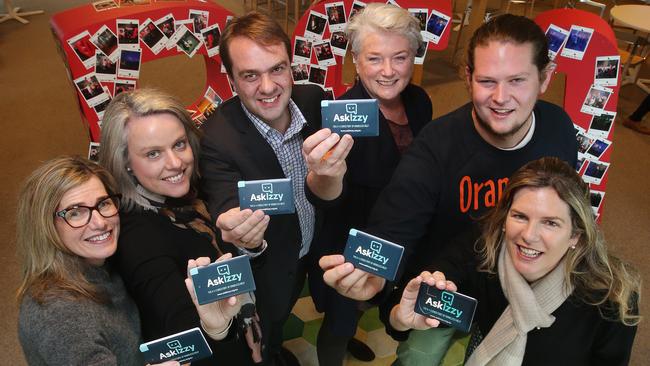Ask Izzy website figures show food is the top search for people in need
ACCESSING food has become a top concern for struggling Melburnians, new figures show, and it isn’t just people in extreme poverty or facing homelessness who are battling to make ends meet.
Leader
Don't miss out on the headlines from Leader . Followed categories will be added to My News.
ACCESSING food has become a top concern for struggling Australians and it isn’t confined to people who are homeless or in extreme poverty, according to the latest figures from a mobile website that connects people in need with vital services.
While website Ask Izzy was designed to help people facing or at risk of homelessness, charities said data released today showed a much broader picture of need in the community.
SUPPORT AGENCIES PRAISE ASK IZZY APP
Over the past 12 months, food has overtaken housing as the top search on the website, with more than three and a half times the number of people searching for food services compared with this time last year.
More than 800,000 searches have been made through Ask Izzy since it was launched nationwide in early 2016.

More than half of the people who accessed the site were women and a third of all users were aged 27 to 39.
The site also connects people with housing, legal, medical, employment and counselling support, and was developed by Infoxchange in partnership with Google, REA Group and News Corp Australia.
FOODBANK VICTORIA SAYS HUNGER HITS CLOSE TO HOME
Infoxchange chief executive David Spriggs said the huge increase in demand for food services on Ask Izzy provided insight into the pressures Australians were facing.
“We originally developed Ask Izzy as a tool for people experiencing or at risk of homelessness, anticipating that they would be our biggest users,” Mr Spriggs said.
“But these latest shifts in service demand suggest that there are a lot of people out there who aren’t necessarily homeless but who still need help just to make ends meet.”

Healesville Indigenous Community Services Association support worker Merryn Auldist said it was a common misconception that only people sleeping rough or living in extreme poverty sought food relief.
She said “just about anyone” could find themselves in need if they faced issues such as family violence, redundancy or illness.
“You can have a three-bedroom house and a car in the garage and nobody knows that your cupboards are completely empty and you honestly don’t know where your next meal is coming from,” Ms Auldist said.
“Many people expect to go in and find people who haven’t washed or who are perhaps suffering extreme mental health issues, but most of the people don’t look like that — most of the people (at a food bank) look just like you.”


